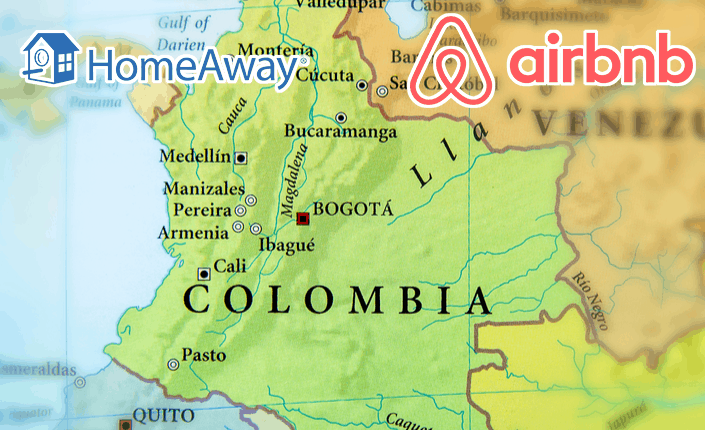
This article was written and published in Spanish and has been translated into English via Google Translate. Click here to read the original article.
Accommodation platforms, Airbnb and Homeaway, during the latest holiday season, affected approximately 25% of formal hotel occupancy in Santa Marta.
This was the conclusion that left a study contracted by the Hotel and Tourism Association of Colombia, Cotelco, that seeks to present the conclusions and recommendations on the risk facing the hotel sector against these two digital alternatives that have taken over the city.
The findings of the analysis indicate that Airbnb and Homeaway depleted about 800 nights a month from tax-paying hotels in the region.
According to this report, the number of properties registered in the capital of Magdalena rose from nine in 2011 to 6837 properties currently registered, with more than 3700 active and providing tourist services on a permanent basis.
The study also revealed that approximately 3815 people administer properties found on the platform. At present 64% of the properties are rented in total, not by rooms.
During the study period (September 2016 to December 2018), 5543 apartments and homes, or 81.1% of the total, have billed around US$24.7 million (about 75,000 million pesos).
The maximum occupancy rate of this platform in the District of Santa Marta occurs during the months of December and January, with a peak of 44% occupancy of the total properties. However, 15% of these properties, concentrate 80% of total income, hence its great impact.
On average these rents are made for between US$70 and US$120 each, that is between 210 thousand and 360 thousand pesos approximately.
Faced with the negative impact that Airbnb and Homeaway are causing to the hotel sector, Cotelco announced its position, in which it states that its request is not to restrict the implementation of the platforms, but through them to promote formal services that generate taxes that are invested in the tourist destination.
"It's clear that this platform is here to stay, but as long as everyone pays their taxes and the platform promotes legal accommodations, it's totally acceptable," said Gustavo Toro, Cotelco's national executive president.
The guild insisted that the District take into account this information to ensure that informal accommodations are not only formalized, but also contribute in economic, social and environmental terms, thus contributing to improve the quality and competitiveness of the city.
"We see a valuable opportunity in these platforms, which if regulated as in other cities, can push the city much more in tourism and throw new resources to improve El Rodadero, Taganga, Bello Horizontes and Pozos Colorados," added Omar García, president of Cotelco, Magdalena chapter. It should be noted that 29% of these informal accommodations are located in El Rodadero and 20% in the nature corridor.
This article was written and published in Spanish and has been translated into English via Google Translate. Click here to read the original article.
Join us in Bangkok the 19th to the 21st of March for the Property Portal Watch Conference.
